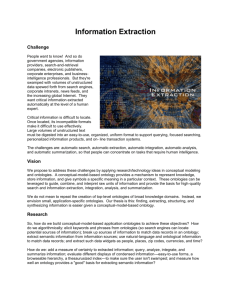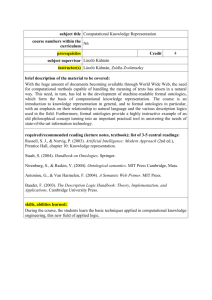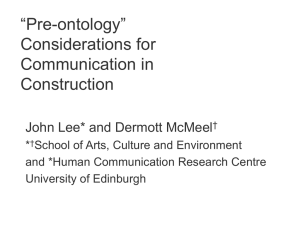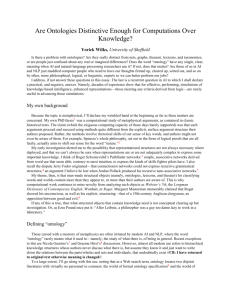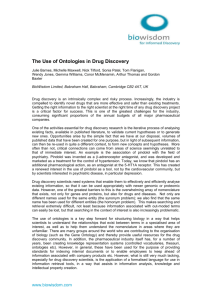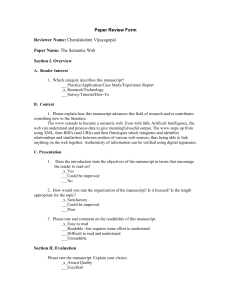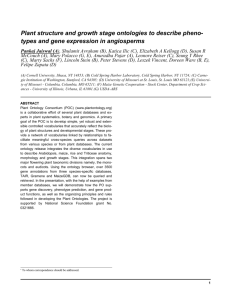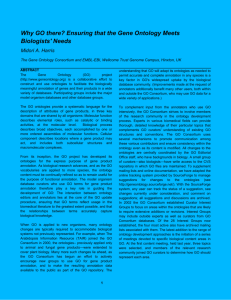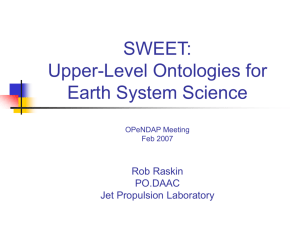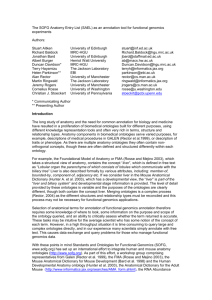CS560 Critique1: Knowledge Representation with Ontologies
advertisement
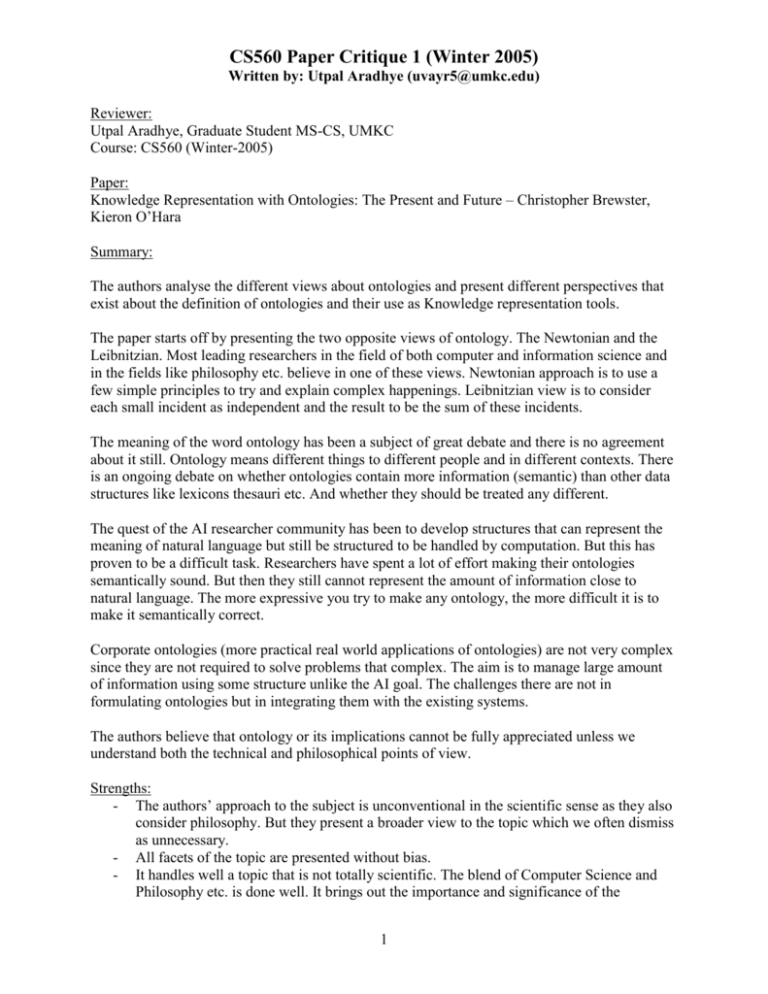
CS560 Paper Critique 1 (Winter 2005) Written by: Utpal Aradhye (uvayr5@umkc.edu) Reviewer: Utpal Aradhye, Graduate Student MS-CS, UMKC Course: CS560 (Winter-2005) Paper: Knowledge Representation with Ontologies: The Present and Future – Christopher Brewster, Kieron O’Hara Summary: The authors analyse the different views about ontologies and present different perspectives that exist about the definition of ontologies and their use as Knowledge representation tools. The paper starts off by presenting the two opposite views of ontology. The Newtonian and the Leibnitzian. Most leading researchers in the field of both computer and information science and in the fields like philosophy etc. believe in one of these views. Newtonian approach is to use a few simple principles to try and explain complex happenings. Leibnitzian view is to consider each small incident as independent and the result to be the sum of these incidents. The meaning of the word ontology has been a subject of great debate and there is no agreement about it still. Ontology means different things to different people and in different contexts. There is an ongoing debate on whether ontologies contain more information (semantic) than other data structures like lexicons thesauri etc. And whether they should be treated any different. The quest of the AI researcher community has been to develop structures that can represent the meaning of natural language but still be structured to be handled by computation. But this has proven to be a difficult task. Researchers have spent a lot of effort making their ontologies semantically sound. But then they still cannot represent the amount of information close to natural language. The more expressive you try to make any ontology, the more difficult it is to make it semantically correct. Corporate ontologies (more practical real world applications of ontologies) are not very complex since they are not required to solve problems that complex. The aim is to manage large amount of information using some structure unlike the AI goal. The challenges there are not in formulating ontologies but in integrating them with the existing systems. The authors believe that ontology or its implications cannot be fully appreciated unless we understand both the technical and philosophical points of view. Strengths: - The authors’ approach to the subject is unconventional in the scientific sense as they also consider philosophy. But they present a broader view to the topic which we often dismiss as unnecessary. - All facets of the topic are presented without bias. - It handles well a topic that is not totally scientific. The blend of Computer Science and Philosophy etc. is done well. It brings out the importance and significance of the 1 CS560 Paper Critique 1 (Winter 2005) Written by: Utpal Aradhye (uvayr5@umkc.edu) - scientific approach and also shows that sometimes this is just not enough when we are dealing with something like Intelligence – which is not a mechanical or structured thing. Brings out several good points during the discussion. Such as Newtonian philosophy shows us that interaction between human and computer is not symmetrical. Points out that Formalization is tough and that our methods of trying to structurally represent and handle every form of information are just not adequate enough. The industrial perspective of ontologies is brought out well and also later since that is what impacts us most. The paper discusses ontology for 14 pages and is honest enough to admit that nobody really knows what it means. Weaknesses: - The paper seems to go into too much detail of philosophy and related topics. It’s a long paper but it is not saying much. The initial parts are fine but later it just becomes incomprehensible. - It assumes too much background knowledge of ontologies to be such a broad scope of discussion. - If this is a scientific paper published in a scientific forum then it lacks the structure and focus that a science paper should have. - This should have been separate papers possibly giving different views on ontologies. Putting all those perspectives in one paper just creates an overload. Critical Questions: 1 2 3 What is the thing about ontologies that makes them a promising theory/practice (since we don’t even agree on what it is)..? If simple ontologies are the ones that are going to be most likely to be implemented in the near future, in what way will they be different from the existing structured data methods that are in use? The philosophical aspect spends a lot of time dealing with what a certain thing can be and what it is not. But science does not work that way. If ontologies have properties that are useful, they will be used, else not. What is the significance of the philosophical aspect? 2

